Europa Universalis 5: Ambisjoner på planetarisk skala møter en tøff start
Europa Universalis 5 lands with the weight of a studio known for long horizons and layered historical sandboxes. In scope, this is Paradox’s boldest grand strategy simulation: a world modeled from 1337 to 1837 with high-resolution demographic systems and region-by-region detail that eclipses the series’ past scale. Every individual matters, every patch of terrain shapes the trajectory of states, and every decision ripples across centuries. The pitch is audacious. The delivery at launch is powerful, uneven, and occasionally brittle.
IGN’s review by Leana Hafer provides the core context for this assessment. Her early hours framed the experience with a sense of disbelief at the simulation’s ambition.
“This can’t possibly be real, right?” — Leana Hafer
She characterizes Europa Universalis 5 as astonishing in systemic ambition, rooted in a map that expands each province into clusters of granular locations, complete with culture, faith, and class layers for every person represented. The game’s drive toward real-world nuance does not stop at population. It threads geography, climate, infrastructure, and logistics into an interconnected machine that rewards patience and punishes imprecision. This is grand strategy at its most obsessive.
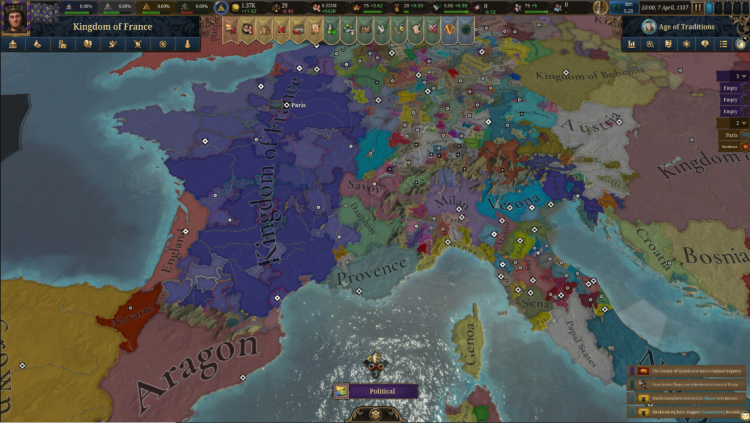
“It really does all of that. And it’s generally quite engaging… There is a lot of turbulence.” — Leana Hafer
That friction shows up in balance quirks, AI lapses, and geopolitical oddities. Nations expand in implausible patterns. Colonization, despite new brakes, accelerates into historically absurd timelines. The Holy Roman Empire stalls. China fractures into chaos. Remote, single-port states leap across oceans to take control of continents. These outcomes break immersion not because history must be replicated exactly, but because the world often fails to produce a plausible historical logline. Europa Universalis has always encouraged alternative histories; its issue here is coherence rather than divergence.
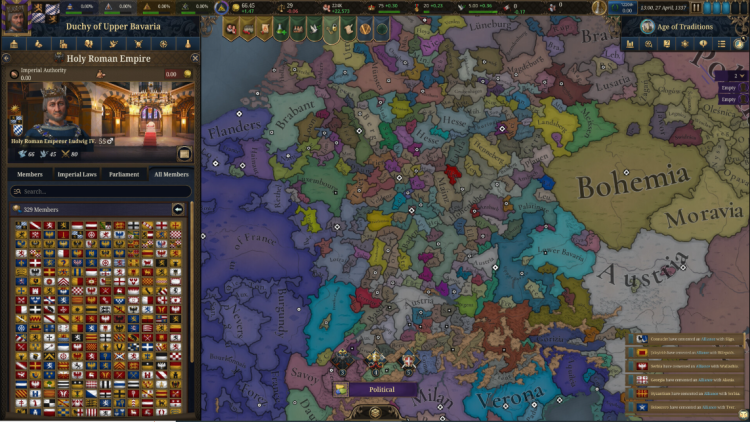
Performance sits at the other end of the spectrum: unexpectedly strong. Even on CPUs below recommended specs, the simulation moves briskly. High-load late-game scenarios introduce drag, but do not collapse into slideshow territory. Given the scale of tracking every person, terrain type, and political structure across half a millennium, Paradox earns credit here. The bones of EU5 are sound in ways that matter for longevity. It does not buckle under its own vision.
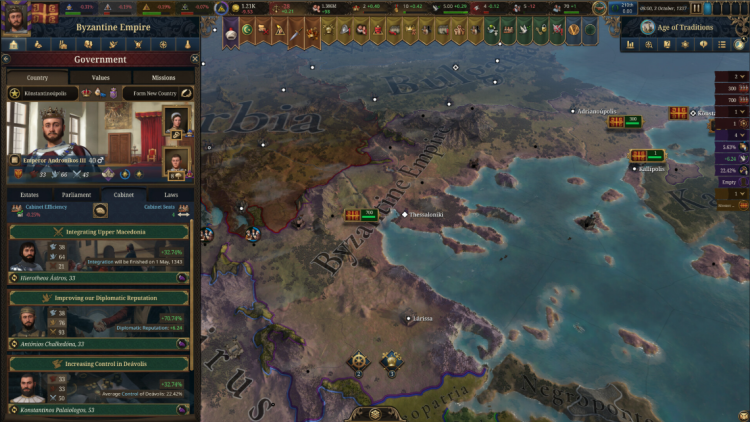
Stability, though, fluctuates. Crash frequency ranges from tolerably rare to regularly intrusive, depending on settings and scenario. The developer has already rolled out patches, including multiple before launch, and more are planned. EU5 enters the market in the familiar Paradox state: conceptually robust, long-term promising, and visibly unfinished. Early adopters embrace this bargain. Others sit back and wait for the six-month point when issues resolve into polish rather than promise.
The central question is whether the game’s complexity can be reined in. Paradox’s grand strategy model thrives on live development, iteration, and community feedback. EU4 matured into genre greatness through years of refinement. EU5 aims to leapfrog that standard, introducing individual population simulation and sharper logistical modeling that demands an even longer runway. There is confidence around that effort. There is also caution. Supporting such density across decades of patches will test the studio’s internal priorities and resources.
Players invested in deliberate pacing and experimentation will find a familiar rhythm. The game is dense. Tutorials soften the learning curve, yet mastery still requires hours before pausing feels safe, and dozens more before systems interlock intuitively. EU veterans expect this. Newcomers face a formidable climb. This is not a compromise product. Ambition defines the experience from the first click to late-century maneuvers.
When EU5 hits its stride, it earns its praise. Designing trade hubs, reworking road networks, and guiding regions into productive alignment carries the satisfying cadence of long-form strategy. Diplomacy, resource allocation, and territorial expansion become threads in a living world that reacts to player intent. Paradox has centered geography and population as the axes of statecraft, shifting reliance away from abstraction and toward tangible levers. The result is engrossing. The challenge is consistency.
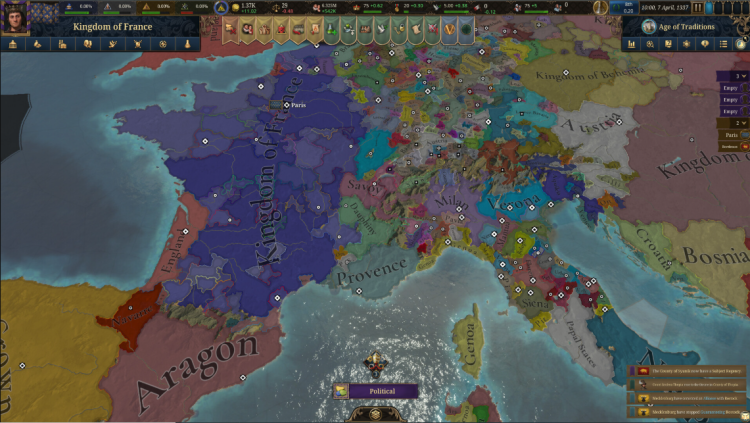
Technical flex aside, the primary critique concerns balance. Numbers need tuning. AI priorities must stabilize. Regional behavior must fall into believable arcs. These are solvable problems. They are also the heart of long-term quality. The studio’s history signals committed post-launch support, though one exception—Imperator: Rome—sits in memory as a warning. EU5 arrives more robust than Imperator did, yet that cautionary example lingers.
Visuals occupy a middle stylistic ground. The world is denser than any Paradox map before it, though not always prettier. Rough topography and coastline rendering occasionally distract. Unit detail and cultural variations bring life to troop movements and ceremonial procession, and context-driven uniforms reinforce the simulation’s depth. The game is not designed to dazzle graphically; it aims to inform and immerse.
In the end, Europa Universalis 5 launches as a monumental design in early form. It is a technical achievement that extends the discipline of historical strategy, demonstrating what persistent iteration and deep simulation can deliver. It is also a product that will evolve meaningfully. Buying in today means accepting that evolution, its instability, and its promise. Grand strategy thrives in long arcs. EU5, more than most, requires one.
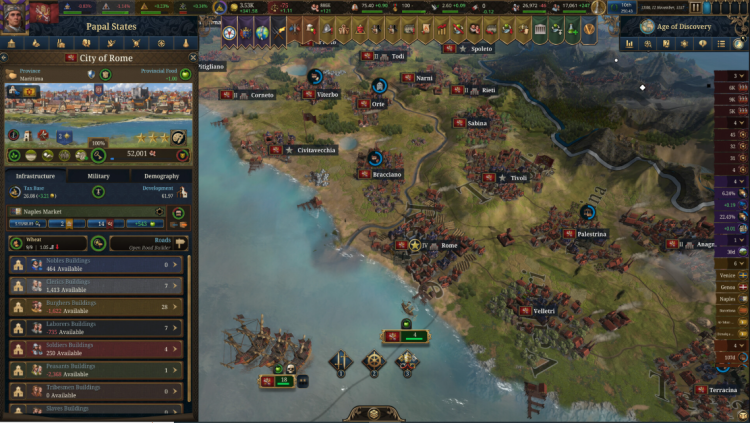
Ambition is the point. The risk is the cost. For some, the turbulence is part of the excitement: the learning curve, the unpredictability, the uneven world taking shape. For others, waiting may be prudent until the map reads more like the alternate reality it intends to be rather than a world spinning through statistical anomalies. Either choice recognizes what EU5 represents: a landmark in scope, in need of time to match its potential.
Paradox has chosen to prioritize scale and systemic depth first, polish second. The gamble may pay off richly. Early adopters step into a living experiment. Strategists who prefer structure will circle back when the simulation hardens into a steadier foundation. The franchise’s legacy suggests patience will be rewarded. Its present state reflects the ambition that made it possible.
Europa Universalis V is available to play on PC (Steam).
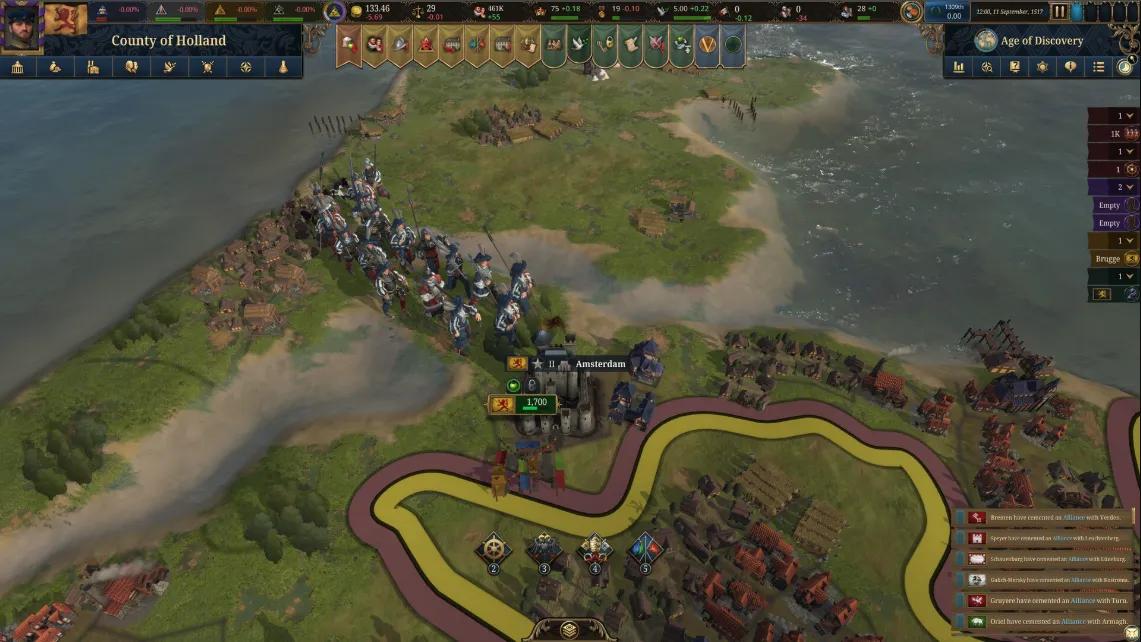
Kommentarer